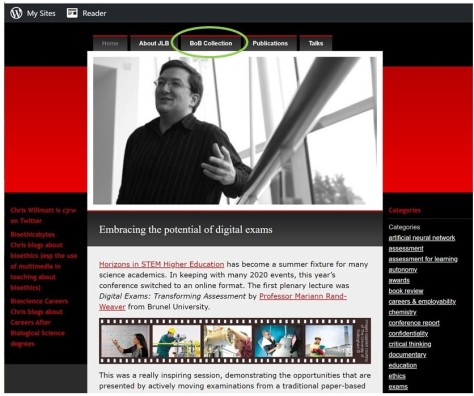Horizons in STEM Higher Education has become a summer fixture for many science academics. In keeping with many 2020 events, this year’s conference switched to an online format. The first plenary lecture was Digital Exams: Transforming Assessment by Professor Mariann Rand-Weaver from Brunel University.

This was a really inspiring session, demonstrating the opportunities that are presented by actively moving examinations from a traditional paper-based format to using digital platforms.
Brunel has been moving to digital exams over the past few years (i.e. not just in response to recent pandemic), partly motivated by asking themselves why exams were almost the only time we ever ask students to hand write anything these days. Additionally, a switch to provision of computers is already a typical “reasonable adjustment” on accessibility grounds, so why not level the playing field by allowing this for all?
There are a range of benefits. For the markers it is easier to read typed scripts. The answers are often better structured, as the students can move around the text to the relevant point. There are also administration benefits – e.g. less paper , less manual handling, more streamlined processes. Continue reading →
July 1, 2020
Categories: assessment, conference report, education, exams, science, teaching . . Author: Chris Willmott . Comments: 1 Comment




